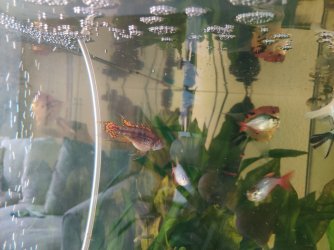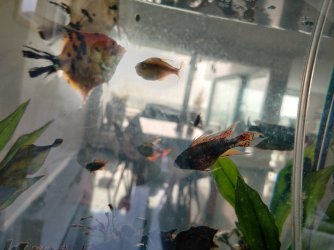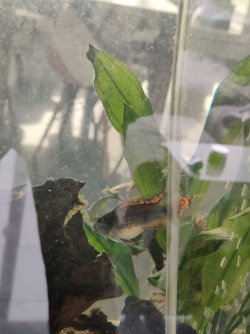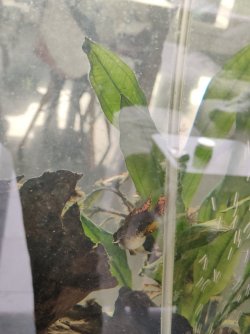Hello everyone,
My male appistogramm orange falsh appears to be bloated (or at least I think he is). I first noticed this on Friday, a couple of hours after I fed blood worms. He had a fat stomach and seemed to be passing the food. I know blood worms cause bloating in many fish, so I didn't feed the tank for a day, because this usually enough time for other fish to go back to normal. However the fish is still bloated and didn't want to take any food I gave to the others. I don't know if these is a bloat or something more serious. I may have overfed the fish this week but non of the others show any symptoms.
I know peas should help with bloat but the fish is too small to eat a whole one so I don't think he would even be interested in eating it or anything at all.
Here are some pictures of the fish any advice would be greatly appreciated
My male appistogramm orange falsh appears to be bloated (or at least I think he is). I first noticed this on Friday, a couple of hours after I fed blood worms. He had a fat stomach and seemed to be passing the food. I know blood worms cause bloating in many fish, so I didn't feed the tank for a day, because this usually enough time for other fish to go back to normal. However the fish is still bloated and didn't want to take any food I gave to the others. I don't know if these is a bloat or something more serious. I may have overfed the fish this week but non of the others show any symptoms.
I know peas should help with bloat but the fish is too small to eat a whole one so I don't think he would even be interested in eating it or anything at all.
Here are some pictures of the fish any advice would be greatly appreciated





